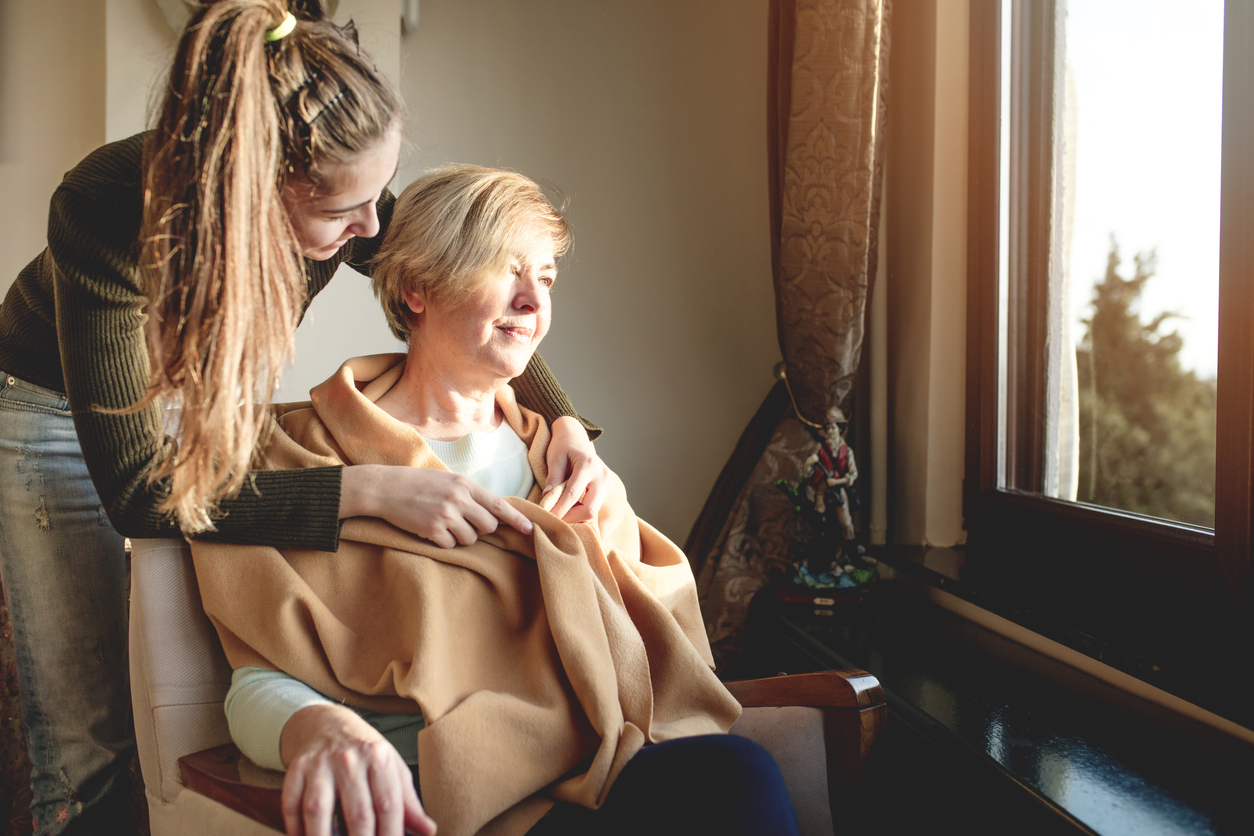_ RCGP Learning
Blog entry by _ RCGP Learning
 Young Carers Awareness Day takes place on 31st January 2019 and, according to the Carers Trust, the aim is to “identify young carers and raise awareness of the vital role that they play in supporting their sick and disabled family members”1. The number of young carers in England is difficult to determine; the latest census in 2011 found that there were around 175,0002, but a more recent survey by BBC News and Nottingham University estimates around 800,000 in secondary school alone3. One of the main reasons for this uncertainty is that young carers and their families are often reluctant to make themselves known to authorities for various reasons. This can make it extremely difficult for GPs to identify young carers in primary care and therefore support them effectively.
Young Carers Awareness Day takes place on 31st January 2019 and, according to the Carers Trust, the aim is to “identify young carers and raise awareness of the vital role that they play in supporting their sick and disabled family members”1. The number of young carers in England is difficult to determine; the latest census in 2011 found that there were around 175,0002, but a more recent survey by BBC News and Nottingham University estimates around 800,000 in secondary school alone3. One of the main reasons for this uncertainty is that young carers and their families are often reluctant to make themselves known to authorities for various reasons. This can make it extremely difficult for GPs to identify young carers in primary care and therefore support them effectively.
The theme of this year’s Young Carers Awareness Day is the importance of mental health, which can be significantly impacted when a child or young person is expected to juggle caring alongside their education and social life. Carers Trust estimates that around 45% of young adult carers have mental health problems4. The pressure of caring for one or multiple family members can cause a great deal of anxiety for both children and young adults, who are often the primary source of emotional support for the person/people they care for. The Dearden and Becker ‘Young Carers in the UK’ survey found that 82% of young carers provide emotional support as well as nursing-type care, intimate care and child care5.
It is not only a young carer’s mental health that is impacted by their caring role. Their physical health is often impaired due to lack of sleep, poor diet and having to lift a heavy adult6. These issues, combined with their responsibilities at home, can have a significant impact on their education and school life. It is estimated that young carers miss or cut short around 48 school days a year on average and only half have a person at school that knows about their caring role4. Barnardo’s, the children’s charity, highlight that young carers are often bullieddue to being ‘different’ from their peers and therefore feel isolated7. There are also limited opportunities for social activities and to build relationships outside of the family home. Around three quarters of young carers find the school holidays particularly difficult, due to feeling socially isolated and to the increase in their responsibilities at home4.
 Whilst young carers face many difficulties, it is common for them to feel a sense of pride and independence due to their caring role. They also may not be fully aware that their life is different to their peers, which is one of the reasons why many young carers still remain ‘hidden’ from social services. Some families don’t recognise their children as ‘carers’, especially if the child helps their parents care for a sibling, so it is often not declared to local authorities. In other cases, the family is aware of their child’s caring role but worry about the repercussions of involving social services, such as interventions and the possibility of family separation8.
Whilst young carers face many difficulties, it is common for them to feel a sense of pride and independence due to their caring role. They also may not be fully aware that their life is different to their peers, which is one of the reasons why many young carers still remain ‘hidden’ from social services. Some families don’t recognise their children as ‘carers’, especially if the child helps their parents care for a sibling, so it is often not declared to local authorities. In other cases, the family is aware of their child’s caring role but worry about the repercussions of involving social services, such as interventions and the possibility of family separation8.
Without the involvement of social services, it is unlikely that a young carer would be known to their practice or GP. It is therefore important for GPs and practice teams to identify any young carers at the practice, so that they are aware of this during consultations and can signpost them to helpful resources. Young carers may also need to be involved in the care for the person they look after, such as appointments and medications. Some ways in which young carers can be identified include9:
- Putting posters and leaflets around in the waiting room, asking them to self-identify
- Adding a question in the new patient questionnaire at registration
- Looking out for any children or young people that bring an elderly, sick, disabled or frail patient in for an appointment and asking if they are the patient’s carer
- Ask any patients with chronic conditions that require a carer about who their carer is
For more information about identifying and supporting young carers, the RCGP has the following resources available to all healthcare professionals for free:
Supporting Carers in General Practice eLearning course – 3 CPD points
Taking Action to Support Carers in Practice Teams eLearning course - 2 CPD points
Carers Support clinical resource from the RCGP
RCGP Members can also access the following resources about carers:
EKU2017.1: Dementia: supporting people with dementia and their carers in health and social care
EKU9 Briefing: Assessing and helping carers of older people
EKU4: Supporting Carers. An action guide for general practitioners and their teams
GPs can also use the following resources to signpost patients and their families to:
References
1 Carers Trust. 2018. Young Carers Awareness Day 2019
https://carers.org/young-carers-awareness-day-2019
2 Office for National Statistics. 2011. 2011 Census
https://www.ons.gov.uk/census/2011census
3 BBC. 2018. Being a young carer
https://www.bbc.co.uk/news/resources/idt-sh/Being_a_young_carer
4 Carers Trust. 2015. Key facts about carers and the people they care for
https://carers.org/key-facts-about-carers-and-people-they-care
5 Dearden, C. and Becker, S., 2004. Young carers in the UK: the 2004 report. London: Carers UK. Available from: https://dspace.lboro.ac.uk/2134/627
6 Carers Trust Professionals. 2014. Who are young carers?
https://professionals.carers.org/who-are-young-carers
7 Barnado’s. 2018. Young carers. http://www.barnardos.org.uk/what_we_do/our_work/young_carers.htm
8 Department for Education. 2016. The lives of young carers in England. https://assets.publishing.service.gov.uk/government/uploads/system/uploads/attachment_data/file/498115/DFE-RR499_The_lives_of_young_carers_in_England.pdf
9 Royal College of General Practitioners. 2013. Supporting Carers in General Practicehttps://elearning.rcgp.org.uk/course/view.php?id=139